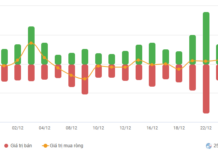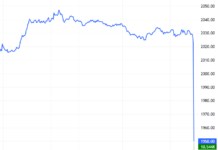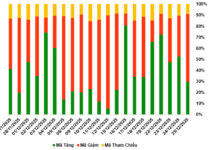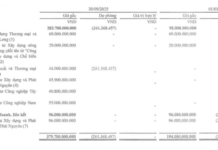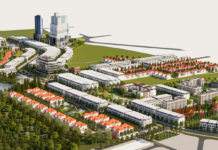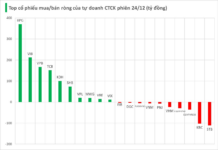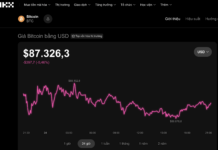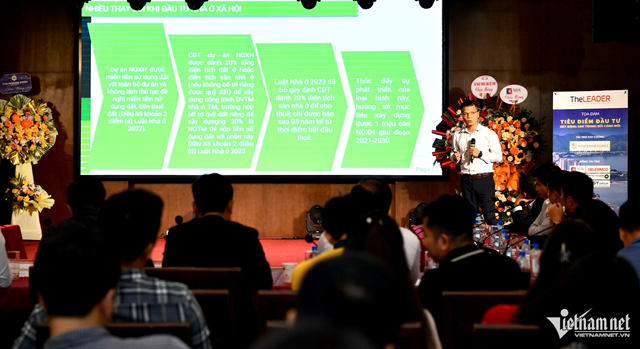
How has the real estate market been performing so far this year? Are there any notable improvements or are certain segments still facing challenges?
The real estate market has shown positive signs of recovery compared to last year, but this improvement has been uneven across different segments and regions. While the residential sector has picked up with a more optimistic market sentiment, transactions in the tourism and resort real estate segment remain sluggish despite the recognition of land use and asset ownership rights for condotels and resorts under Decree 10/2023/ND-CP.
The situation with land plots is mixed, with investors selling to cut losses, especially in areas that previously experienced rapid growth, such as Binh Phuoc, Tay Ninh, Lam Dong, and Dak Nong. In contrast, industrial, office, and retail real estate have witnessed stable growth due to the demand for land and space rental for production, business, and workplace needs.

Mr. David Jackson, CEO of Avison Young Vietnam
What factors are currently influencing the Vietnamese real estate market?
The macroeconomic context plays a significant role in shaping the recovery and development of Vietnam’s real estate market. Positive signs include continued FDI inflows, resumed production and exports, and increasing recruitment needs, all of which bode well for the economy. The new laws on Land, Real Estate Business, and Housing have bolstered the confidence of domestic and foreign individuals and enterprises in the market. Credit growth is expected to accelerate as interest rates show a downward trend.
These factors will undoubtedly impact the supply and demand dynamics in the real estate market.
Are low-interest rates a driving force for the real estate market’s improvement?
While low-interest rates are a favorable factor, in reality, with the current interest rate environment, both individuals and businesses remain cautious and face challenges in accessing loans. This is because property prices remain high, and the low-interest rate environment only lasts for the first year, with rates floating thereafter, making borrowers apprehensive. Additionally, according to Circular 22, which took effect on July 1, 2024, one of the conditions for borrowing is that the housing project must be completed and delivered (ready-built), but many projects are still facing legal issues, disqualifying potential borrowers.
 Mr. David Jackson, CEO of Avison Young Vietnam
Mr. David Jackson, CEO of Avison Young VietnamWhen do you foresee the Vietnamese real estate market entering a phase of improvement?
Each real estate segment has experienced different dynamics over the past year, and the recovery timing, pace, and magnitude will vary depending on the macroeconomic context. Housing supply is expected to improve from 2025 onwards as projects are restarted. In key cities and surrounding areas, selling prices are anticipated to continue their upward trend due to imbalanced supply, limited developable residential land, and rising construction costs.
Aside from the residential segment, which other real estate segments are likely to lead the market?
In addition to the residential segment catering to actual housing needs, the industrial, office, and retail real estate segments are poised for more noticeable improvements in the coming quarters. Specifically, the industrial real estate segment in Vietnam continues to benefit from the ongoing trend of supply chain diversification. Resurgent production-related investment demand has pushed up land rental prices in industrial parks, and occupancy rates remain positive. The supply of industrial land is expected to be abundant in the future as Vietnam accelerates plans to develop new industrial parks, with a growing trend towards energy and environmentally friendly standards.
 Mr. David Jackson, CEO of Avison Young Vietnam
Mr. David Jackson, CEO of Avison Young VietnamThe office market in major cities is witnessing a “greening” trend, with new premium projects and sustainably certified developments entering the market since the second half of 2023, increasing competition and meeting the long-unfulfilled demands of large enterprises and corporations.
Retail real estate holds significant potential. The most challenging aspect for this segment is the transformation of the retail model and the improvement of spaces and layouts to enhance customer experience. Additionally, as transportation becomes more connected and convenient, new shopping centers and mixed-use retail complexes will continue to expand into satellite towns.

Is the Vietnamese real estate market currently attractive to foreign investors, especially with the recent laws expanding their rights in the sector?
In reality, Vietnam is one of the most attractive markets in the region, and its dynamic and fast-growing real estate market is believed to have significant long-term development potential. With the recent laws related to real estate taking effect, the level of interest from foreign investors (including both overseas Vietnamese and foreign enterprises) is expected to increase.
Previously, overseas Vietnamese had to rely on relatives in the country to purchase real estate on their behalf, leading to a lack of autonomy and potential disputes. By expanding the pool of participants in real estate transactions, these new regulations not only encourage overseas Vietnamese to return to invest and own property but also help attract remittances to local areas and contribute to market development.
For foreign enterprises, the new regulations streamline and bring transparency to land-related procedures, providing them with more opportunities to expedite their real estate investment projects in Vietnam.
 Mr. David Jackson, CEO of Avison Young Vietnam
Mr. David Jackson, CEO of Avison Young VietnamThe Land Law 2024, Housing Law, and Real Estate Business Law 2023 took effect on August 1st. In your opinion, do these laws usher in a new era for the market, making it more transparent, safe, and beneficial for buyers and investors?
The adjustments made in these laws have clarified and detailed their content while addressing the shortcomings of previous legislation. As a result, they promote a transparent and consistent legal system and a safe and stable investment environment, which are highly valued by large, long-term investors and the general public.
For instance, the Land Law 2024 stipulates that the land price framework will be updated and adjusted annually, and it also specifies four land valuation methods. These were considered major legal bottlenecks for many real estate projects in the past. Therefore, once effective, the new law will facilitate the conversion of land use purposes, enabling developers to expedite legal procedures.
The amendments in the Real Estate Business Law (2023) help regulate, manage, and operate real estate activities in an orderly manner. The provisions on information disclosure before a project is put up for sale, the encouragement of real estate transactions through official exchanges, the maximum deposit limit of 5%, and the payment regime for the purchase of houses formed in the future enhance safety and transparency for all parties involved in transactions.
Despite positive signals in the market, many real estate enterprises are facing difficulties, particularly with debt repayment pressure in the 2024-2025 period. Some have had to restructure or engage in M&A projects. What should enterprises do to maintain and develop their businesses?
Indeed, many real estate businesses continue to face challenges, whether due to legal issues with their projects or financial difficulties stemming from inventory. Balancing the financial equation is crucial for real estate investors to maintain and develop their businesses, such as resolving bad debts. Next, it’s essential to stay attuned to the market’s actual needs, focusing on the mid-range and lower segments and targeting locations with well-connected infrastructure while keeping selling prices reasonable to attract buyers.
Lastly, enterprises should maintain a cautious approach and a long-term vision to ensure stable and sustainable development.
Thank you, Mr. David Jackson, for your insights!

